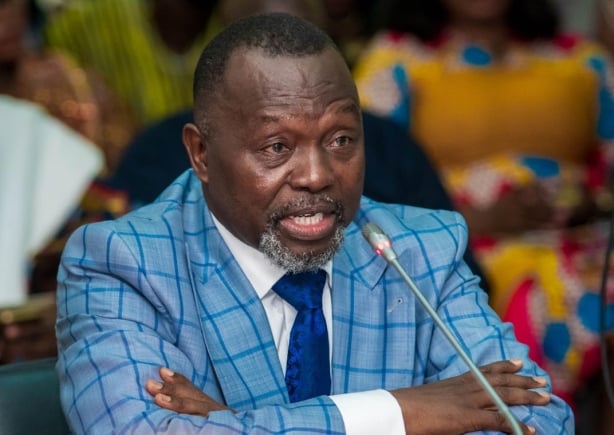The case of Gregory Afoko, accused of the murder of Adams Mahama, the former Upper East Regional Chairman of the New Patriotic Party (NPP), has become a focal point of Ghana’s legal system, highlighting the complexities and challenges of ensuring justice while upholding the rights of the accused. Afoko’s eight-year detention without a conclusive verdict has raised significant concerns about prolonged pre-trial detention and the potential erosion of justice delayed. This protracted legal battle has attracted attention from human rights organizations and underscored the need for a swift and fair resolution. Attorney General and Minister of Justice, Dr. Dominic Ayine, has acknowledged the hardships faced by Afoko and assured the public of his commitment to ensuring justice is both served and seen to be served.
Dr. Ayine’s recent decisions to discontinue several high-profile cases, including those involving officials from the previous Mahama administration, have sparked public debate and scrutiny. Cases like the Saglemi Housing Project, charges against former Bank of Ghana Deputy Governor Johnson Asiama, the Democracy Hub case, and the prosecution of former COCOBOD CEO, Dr. Stephen Opuni, have all been discontinued, prompting questions about the rationale behind these decisions. Critics have questioned the timing and selective nature of these discontinuations, raising concerns about potential political motivations and the implications for accountability.
Dr. Ayine has defended his actions, emphasizing that the decisions were not arbitrary but based on careful legal and procedural considerations. He highlighted the importance of evidence and the broader interests of justice in guiding such decisions, asserting that the discontinuation of a case is a serious matter undertaken with due diligence. The Attorney General’s explanation seeks to address the public perception of selective justice and reassure the public of his commitment to upholding the rule of law.
The Afoko case represents a particular challenge for the justice system. The prolonged detention, coupled with the complexities of the case, demands a careful and balanced approach. Dr. Ayine has reassured the public that Afoko’s case, along with others still under review, will be handled fairly and without prejudice. This assurance seeks to address the concerns raised by human rights organizations and emphasize the importance of due process in all legal proceedings. The Attorney General’s commitment to ensuring a fair trial for Afoko underscores the principle that justice should be applied equally to all, regardless of the political climate or public pressure.
The Afoko case highlights the inherent tension between ensuring a fair trial and managing public expectations. The high-profile nature of the case, coupled with the lengthy legal process, has created significant public interest and scrutiny. The Attorney General’s pronouncements and decisions are subject to intense public debate, requiring a delicate balance between transparency and the need to maintain the integrity of the legal process. Striking this balance is crucial for maintaining public trust in the justice system.
In conclusion, the Gregory Afoko case exemplifies the multifaceted challenges facing Ghana’s justice system. The prolonged detention, coupled with the Attorney General’s decisions to discontinue other high-profile cases, has raised questions about fairness, transparency, and accountability. Dr. Ayine’s assurances of a fair trial for Afoko, while acknowledging the complexities of the case, underscore the delicate balancing act required to uphold the principles of justice while navigating the pressures of public opinion and political scrutiny. The outcome of the Afoko case will have significant implications for the public’s perception of the justice system and its ability to deliver both justice and fairness.














